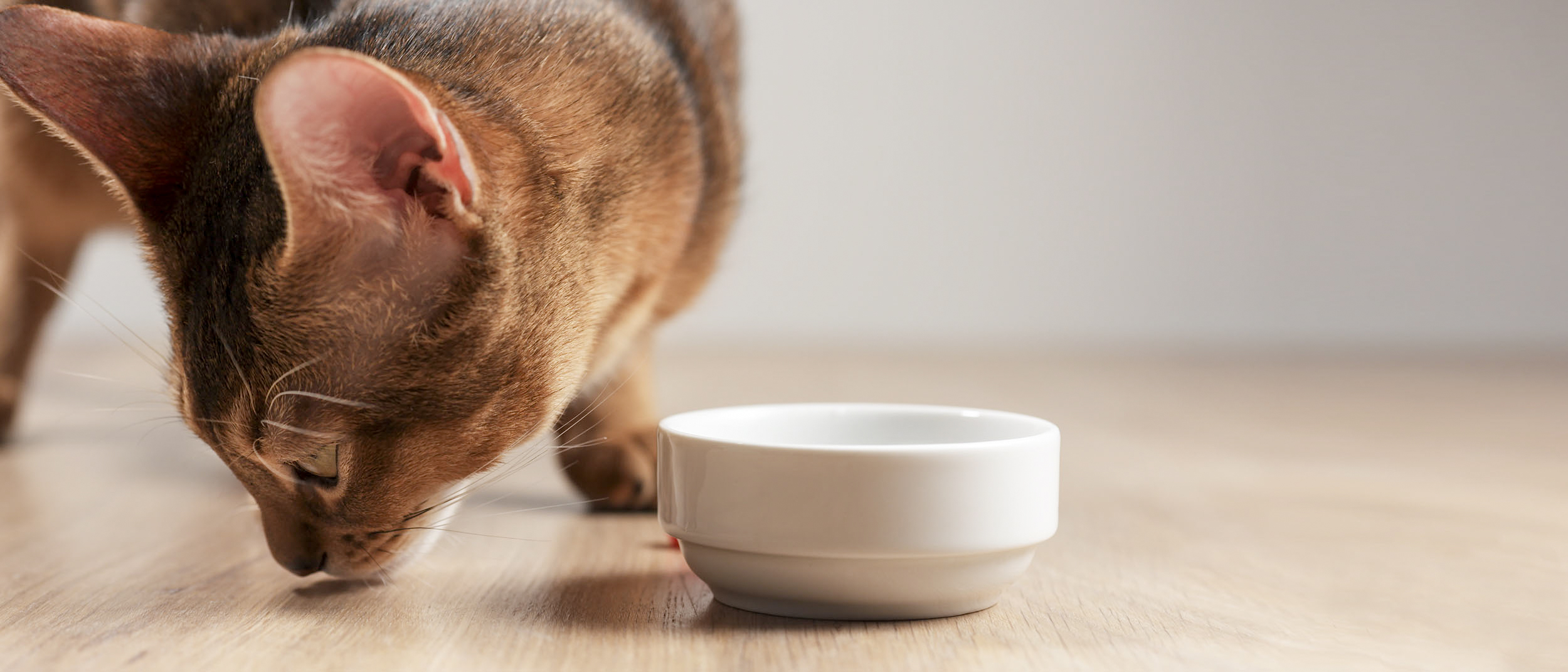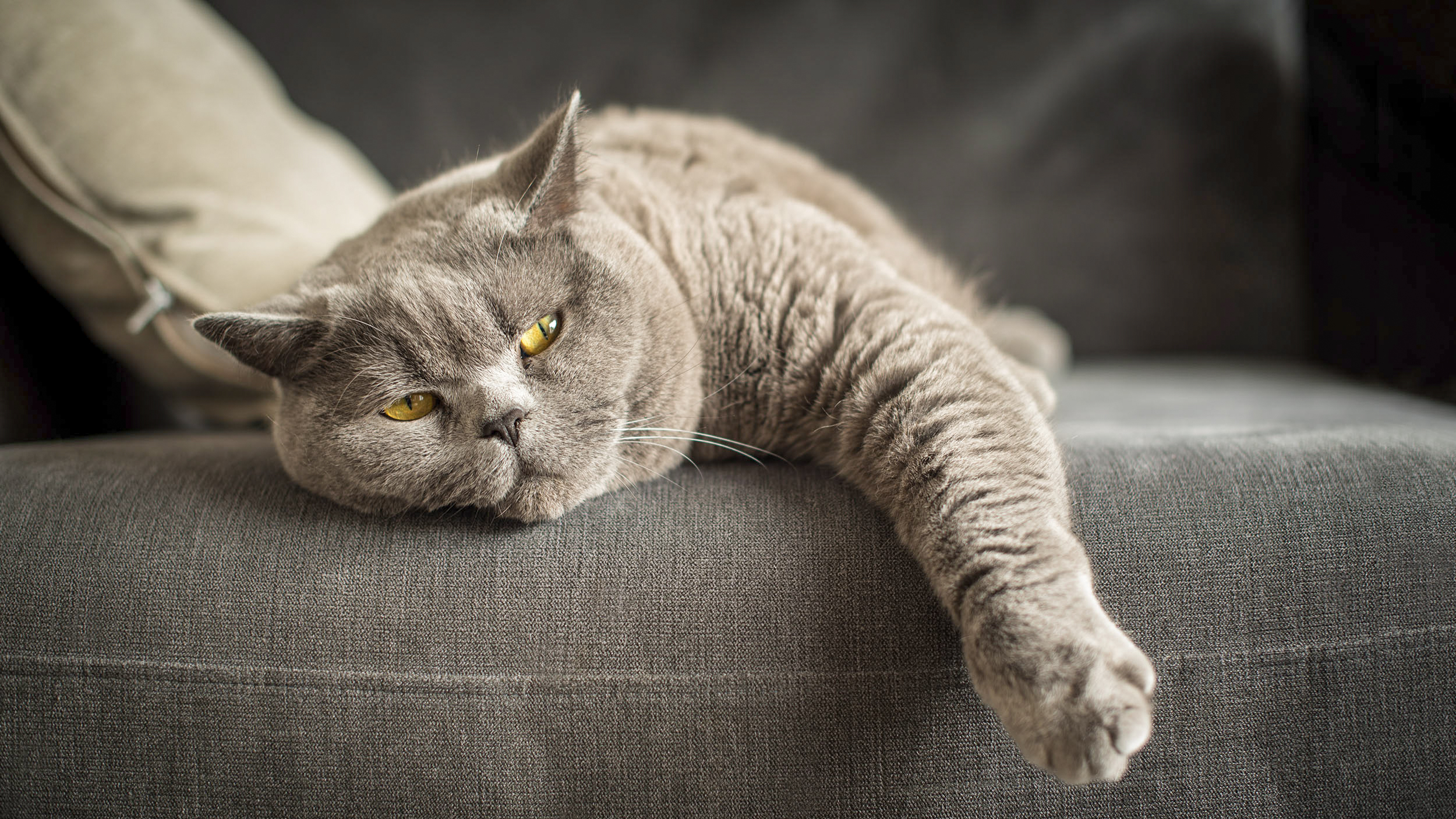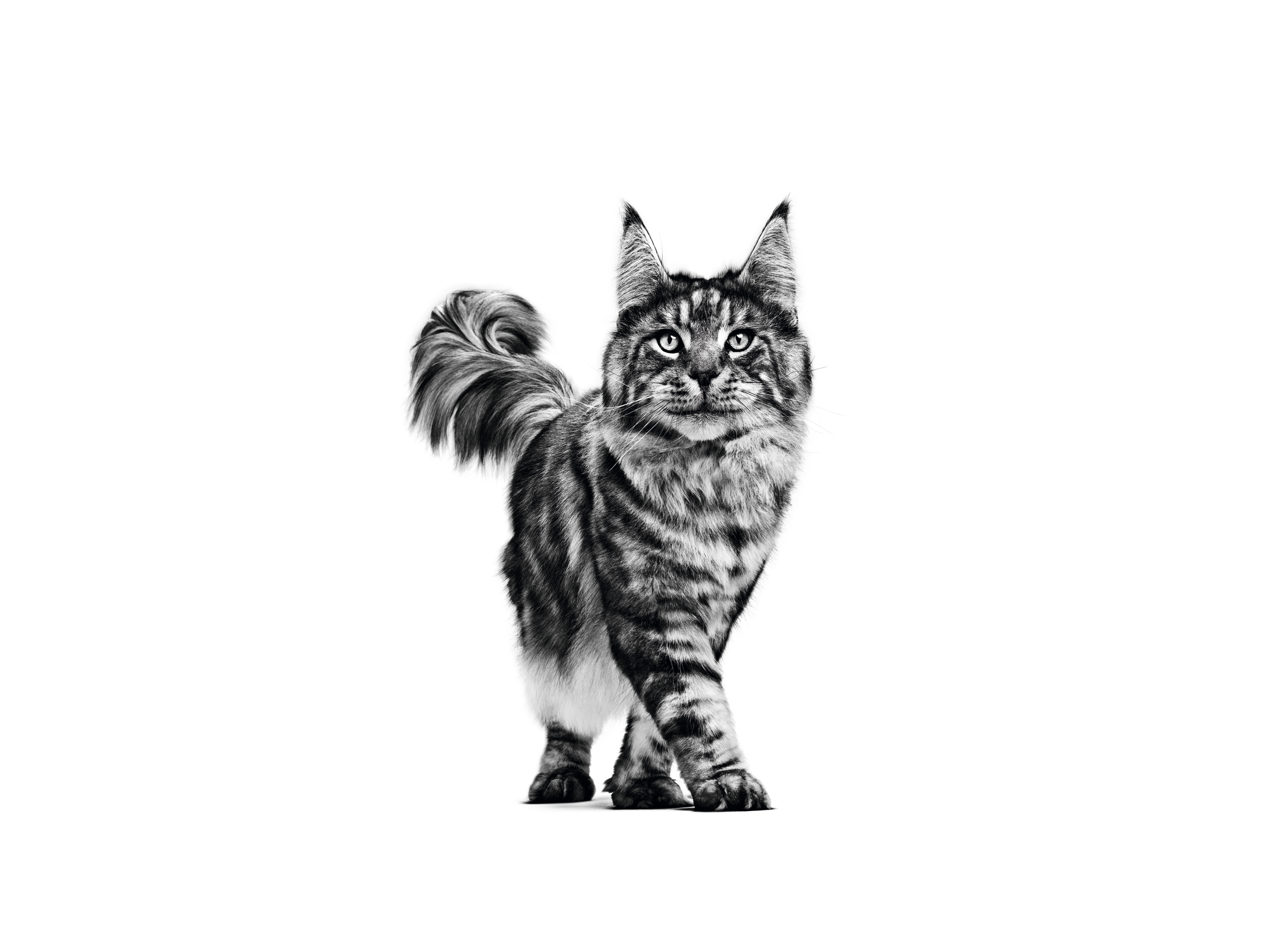Por que meu gato está perdendo peso?

O peso do seu gato vai naturalmente mudar de filhote para adulto, afetado por fatores tão variados quanto seu sexo, raça, idade, estilo de vida e dieta. Mas, se você notar uma queda repentina no peso do seu gato, é importante consultar um veterinário, pois isso pode ser um indicador de um problema subjacente mais sério. A perda de peso pode ocorrer com um apetite normal, ou o apetite pode aumentar ou diminuir.
Distúrbios gastrointestinais (GI) em gatos
Se seu gato estiver sofrendo de desconforto, dor ou irritação no sistema digestivo, isso pode causar perda de apetite e eventual perda de peso, pois o gato não quer comer. Os distúrbios gastrointestinais podem incluir doença inflamatória intestinal (IBD), desequilíbrios da microbiota, alergias alimentares ou problemas de absorção do intestino delgado. Você também pode notar que o pelo e a pele do seu gato são de qualidade pior que o normal.
Doença sistêmica
Gatos com doença sistêmica, como doença renal crônica, hipertireoidismo ou diabetes, podem apresentar sinais de perda de peso. Dependendo de qual doença está causando a perda de peso, seu gato pode não ter o apetite alterado. É importante consultar seu veterinário para descartar doenças como essas, que podem causar perda de peso.
Gatos e doença hepática
Gatos não costumam apresentar sinais clínicos de doença hepática até estar bem avançada; no entanto, a perda de peso é um sinal precoce, juntamente com letargia, vômito e recusa de comer.

Your cat and parasites
A number of different parasites can cause weight loss in your cat. Two types, Giardia and Coccidia, both cause severe diarrhoea which can lead to dehydration and weight loss. It's essential you see a vet if you believe your cat has a parasitic infestation, as they'll be able to specify what parasite it is and advise how to protect your cat (and you) against it.
Hairballs and cats
Cats spend a significant amount of time grooming themselves, which regulates their body temperature and keeps their hair and skin clean. However, if their hair isn’t properly excreted through their digestive system, it can get caught up and form hairballs. These lumps of matted hair can lead to regurgitation, constipation, esophagus blockages, a loss of appetite and eventual loss of weight.
Vitamin deficiencies in cats
Weight loss, alongside dermatological problems like flaking skin, alopecia and scratching, can be an indicator of a B vitamin deficiency, which occurs with gastrointestinal disease or when an unbalanced diet is fed. This vitamin is water-soluble and cannot be stored in the body, therefore your cat’s diet must include the vitamin B complex to help maintain a healthy coat and skin.
If your cat is eating a diet that is not complete and balanced, they may be at risk for vitamin and other nutrient deficiencies. If your cat is losing weight and you’re worried it might be due to a vitamin deficiency, please see your veterinarian.
If you have any concerns about your cat’s recent weight loss, make sure to visit your vet; they’ll conduct a full examination and be able to address your concerns directly. The best way to ensure your cat remains at a healthy weight is to visit your veterinarian regularly and to measure your cat’s food, so you can take note of any changes in food intake.

Find a vet
If you have any concerns about your cat’s health, consult a vet for professional advice.
Curtir e compartilhar esta página